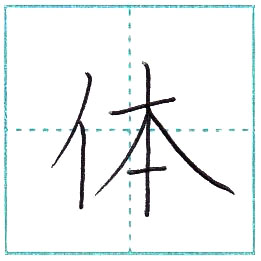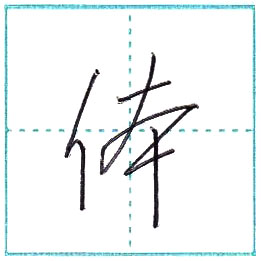今回と次回の記事で、行書の「体」を2種類紹介します。今回はそのPart.1です。
こんかいとじかいのきじで、ぎょうしょの「体(たい)」をにしゅるいしょうかいします。こんかいはそのパートワンです。
I introduce 2 types of 体(tai) in semi-cursive script in this and the next article. This time is the Part.1.
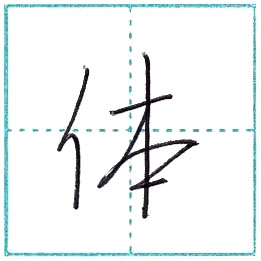
スポンサーリンク
単語例(たんごれい)
Word examples
人体 [じんたい jin tai] = human body
体毛 [たいもう tai mou] = body hair
体質 [たいしつ tai shitsu] = body type, constitution
体力 [たいりょく tai ryoku] = physical strength
体調 [たいちょう tai chou] = physical condition
死体 [したい shi tai] = corpse
遺体 [いたい i tai] = corpse (more polite than 死体)
ご遺体 [ごいたい go i tai] = corpse (more polite than 遺体)
体内時計 [たいない どけい tai nai do kei] = biological clock
体外受精 [たいがい じゅせい tai gai ju sei] = external fertilization
スポンサーリンク
書き順(かきじゅん)
Stroke order
1.
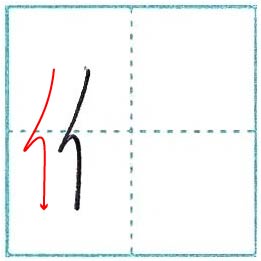
2.
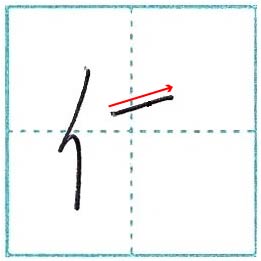
3.
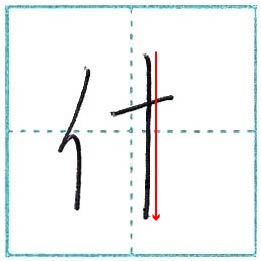
4. 次の線は、1画で書きます。
つぎのせんは、いっかくでかきます。
Write the next line with one stroke.

4-1.
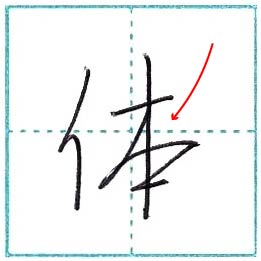
4-2.

4-3.
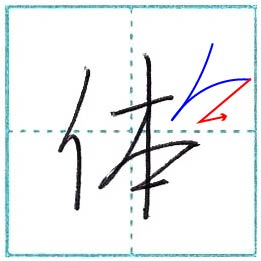
5. 完成(かんせい) Finish

公開日/post 2017.10.07
更新日/update 2025.05.29
スポンサーリンク

